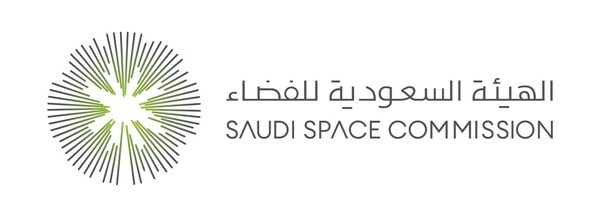Saudi's Space Mission will be for the Benefit of Science

RIYADH,Saudi Arabia,March 21,2023 -- The Saudi Space Commission (SSC) have revealed the tasks and scientific research that will be conducted during the journey of the Saudi astronauts,Rayyanah Barnawi and Ali Alqarni as part of the mission to the International Space Station (ISS),during the second quarter of this current year.
The SSC announced that the two astronauts,will conduct 11 pioneering scientific research experiments in microgravity during the flight. The results of which will enhance the Kingdom's global position within the field of space exploration and service to humanity. It will also confirm the role of Saudi research centers in making a scientific impact in this field.
The SSC said that The Saudi experiments in space range from human research and cell science to artificial rain in microgravity. The SSC also indicated that in the artificial rain experiment,in which water vapor will be condensed on plankton and salt atoms in microgravity that simulate the cloud seeding process that is used in the Kingdom of Saudi Arabia and many other countries to increase precipitation rates. Led by Dr. Ashraf Farahat,this experiment is for the King Fahd University of Petroleum and Minerals and will help scientists and researchers devise new ways to provide suitable conditions for humans - including the work of artificial rain - to live in space colonies on the surface of the Moon and Mars. The experiment will also contribute to improving researchers' understanding of rain-seeding technology,which will contribute to increasing rainfall in many countries,God willing.
To better understand the impacts of being in space on human health,Saudi's Nebula Research and Development,led by Dr. Bader Shirah,is conducting six experiments aboard the ISS,which will be performed by the astronauts. These experiments will utilize novel neuroscience tools including measuring blood flow to the brain and the brain's electrical activity,assess intracranial pressure by non-invasive assessment of the pupil of the eye,and monitor changes in the optic nerve over time. Improved monitoring of neurological health may help make spaceflight safer in the future and allow for the development of rapid,non-invasive monitoring,as well as early interventions and the development of countermeasures. Blood and bio-sample specimens will also be taken to examine multi-omic biomarkers related to spaceflight and to map changes in the length,structure,and epigenetics of chromosomes and telomeres.
The cell science experiments lead by the world-renowned King Faisal Specialist Hospital and Research Center (KFSHRC) and its team of scientists,Dr. Khalid Abu Khabar,Dr. Wijdan Alahmadi,and Dr. Edward Hitti,will be investigating the inflammatory response of human immune cells in microgravity. More specifically their research will be focused on changes in mRNA decay,a process that can turn inflammation off. In addition,response to therapy is mimicked by utilizing the same cellular model. The crew will take RNA samples for analysis on ground,where the investigators will monitor RNA expression patterns,and excitedly thousands of mRNA half-lives will be measured. Results are expected to contribute to a better understanding of space health and uncover biomarkers or potential therapies for inflammatory diseases in both Space and Earth.
In addition to these experiments,three educational awareness experiments will be conducted aboard the ISS in real time with students across Saudi,in collaboration with the Ministry of Education,Mawhiba,Riyadh Schools and Misk Schools. The objective of these experiments is to enhance the students' knowledge of space science and its contribution to improving the quality of life on Earth,by juxtaposing their terrestrial based experiments to the ones being conducted in real-time by the Saudi crew aboard ISS. Students can see first-hand how the experiment environment can have a real effect on the results. This real-time interaction ensures that students will have access to the Saudi crew live as they perform their experiments together,one on Earth,and one in space simultaneously.
The efforts by the SSC are designed to prepare future astronauts and engineers,through quality educational and training programs,participation in scientific experiments,international research and future space-related missions – all of which will contribute to raising the status of the Kingdom and to achieving the goals of the Kingdom's Vision 2030.